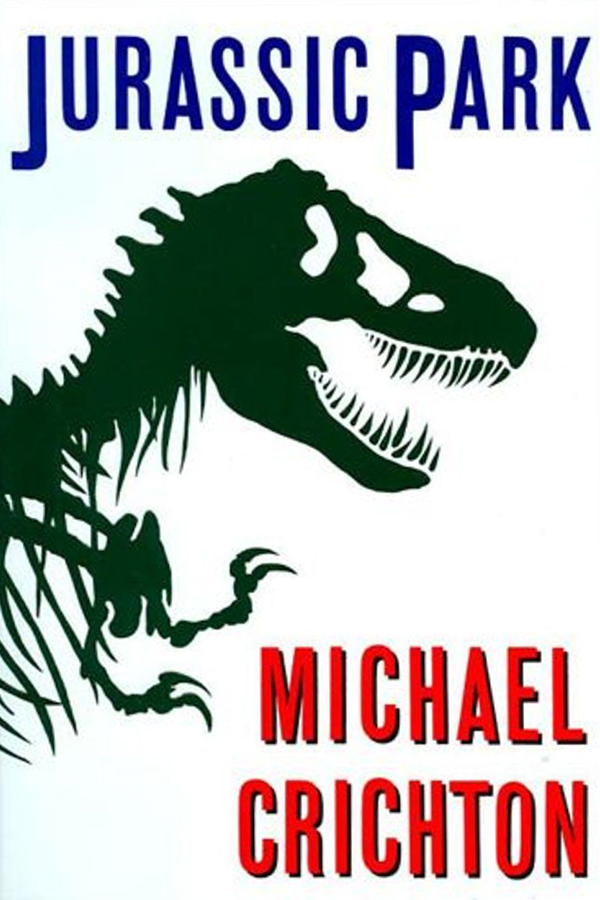Jurassic Park
- 30 Jun 2019
- It might dated and over-the-top in some ways, but the book that's led to the blockbuster movies is more intellectually engaging than any of them.

I remember thinking that “Raptors” was a silly name for an NBA team when it was made official. Even with the team recently becoming champions and the Jurassic Park movies still making billions, I still think that the name is silly. Coincidentally, I came across a YouTube video that explained the differences between the movie, which obviously inspired the team’s name, and the book. I was motivated the latter and finished it in a day.
I first read it in the ninth grade for an English project, some time before the second movie was in theaters. Overall, the book is better than I’d remembered. I have more understanding of the scientific concepts this time around, and I appreciate the graphs, diagrams, and code that let the reader see information that the characters see in their world. It adds depth to the story.
The prologue in particular is intriguing. Even the corporate rivalry, between John Hammond’s InGen and its competitor Biosyn, is interesting. Some of the characters are more like caricatures, though. Hammond is a visionary who always blames others and his granddaughter Lex is a kid who always endangers, others not to mention herself. Some perceptiveness on their part would’ve made them less one-dimensional.
I’m surprised how the passing of time and memory of the movie has made me forget about aspects of the book. I didn’t remember Hammond and Lex being so irritating or Ian Malcom being so prone to prattling about chaos theory. I remembered the pitiful death of Hammond and the gruesome death of Henry Wu, the lead scientist, I forgot about the brutality of Dennis Nedry’s death.
The entire sequence along the river is incredibly eventful, but ironically it hasn’t been memorable for me. It isn’t depicted in the movie, which has definitely supplanted my recollection of the story until now. The constant peril that Grant and the kids face during this sequence makes it seem like a theme-park ride, and it exemplifies an issue that I have with the book; I think that it would’ve benefitted from having less over-the-top action.
The main theme is that trying to control nature never works as expected. The most obvious example is the park’s scientists, led by Henry Wu, using amphibian DNA to complete the cloning of raptors and some other species. Despite engineering them to be female as well as sterilizing them, the staff don’t recognize the possibility of these genetic hybrids having the capability to spontaneously change their sex in certain environmental conditions.
A secondary and related theme is the fallibility of man. The book could serve as the basis for a fictional episode of Seconds from Disaster. The premise of the show is that disasters are rarely caused by a single event. In this case, Nedry sabotaging the park’s systems is the catalyst, but his scheme to smuggle DNA specimens is motivated by him feeling trapped as a contractor, which is caused by the Hammond’s demanding nature and secretive project.
I don’t recall if the movie features the same mistakes that the characters make in the book. The park has the tools to accurately track and tally the dinosaurs, but the staff only use them to verify the expected numbers and not the actual numbers until Malcolm tells them otherwise Later, the characters restore power to the park without realizing that, after a shutdown, the park draws from an auxiliary source that eventually depletes.
Like the cloning technique that theoretically makes the dinosaurs possible, the setbacks are imaginative and plausible, at least for the time. Cray supercomputing and terabyte storage are no longer bleeding-edge, and dial-up networking wouldn’t be used at all, let alone at a critical time, but part of the book’s charm is that it perfectly captures the era of its writing and setting, when breakthroughs in computing and genetics had been on the horizon.
I saw the movie as a kid, but it never captured my imagination the way that it apparently did for many people of my generation. I was past the age that kids would typically be enamored with dinosaurs, although I enjoyed the movie. I appreciate its cultural impact, but Steven Spielberg’s interpretation is child’s play compared Michael Crichton’s original story.